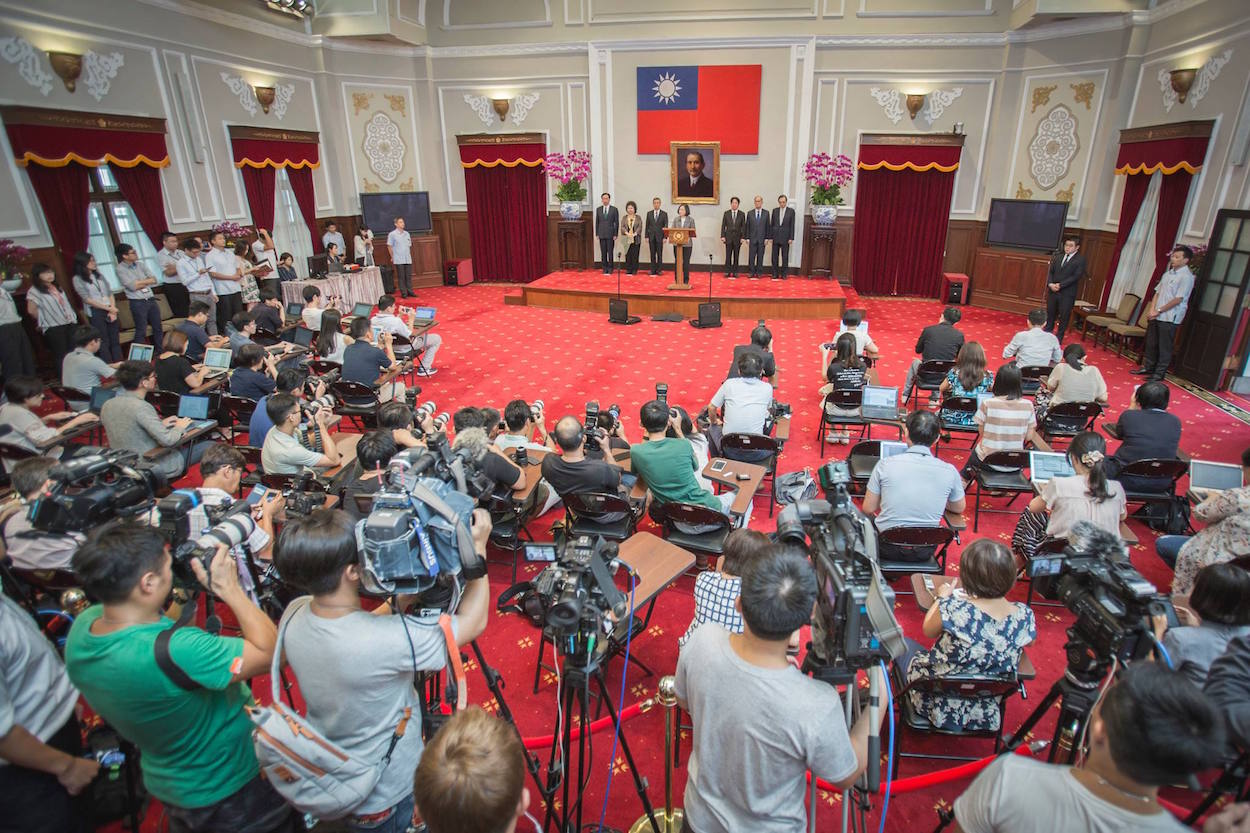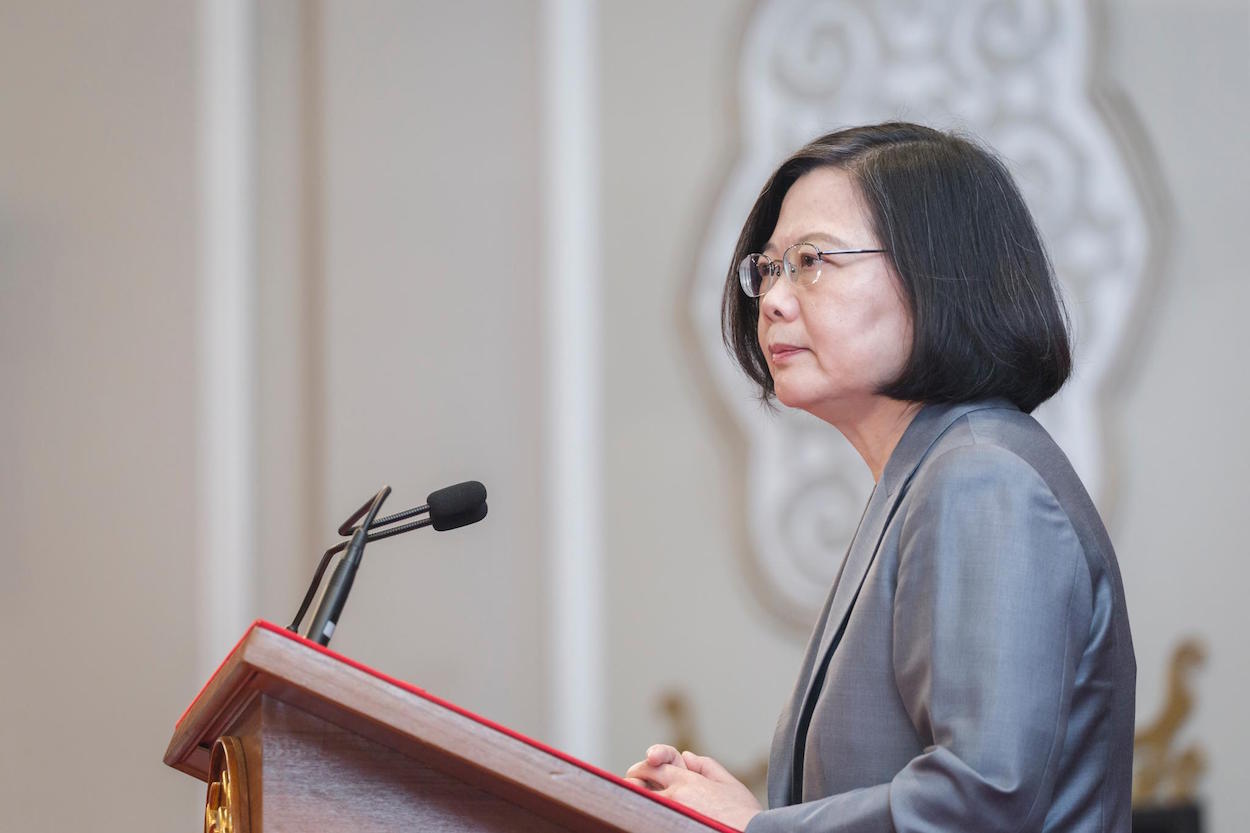by Brian Hioe
語言:
English
Photo Credit: Tsai Ing-Wen/Facebook
NEWS THAT El Salvador has decided to break diplomatic ties with Taiwan marks the third diplomatic ally that Taiwan has lost this year. This brings Taiwan’s total number of diplomatic allies down to sixteen nations and the city-state of the Vatican.
While El Salvadoran president Salvador Sanchez has touted the benefits of building ties with China for El Salvador, Taiwanese foreign minister Joseph Wu has claimed in public comments that El Salvador broke ties after El Salvador requested an “astronomical sum” from Taiwan for a port infrastructure project, which would have left both Taiwan and El Salvador in debt. Wu also claims that El Salvador switched diplomatic recognition to China after China offered it financial investment and aid, which would not be surprising. Taiwan broke ties with El Salvador ahead of time, in anticipation of El Salvador switching diplomatic recognition to China, though this was mostly not registered in either Taiwanese or international media.
 El Salvadoran president Salvador Sanchez. Photo credit: Government of El Salvador
El Salvadoran president Salvador Sanchez. Photo credit: Government of El Salvador
The timing of El Salvador switching diplomatic recognition to the PRC instead of the ROC notably comes after a visit by Taiwanese president Tsai Ing-wen to Belize and Paraguay, two of Taiwan’s remaining allies in Latin America and South America, which included stopovers in the United States. Unsurprisingly, closer US-Taiwan ties angered China, and it is to be questioned whether this timing is merely a coincidence, or was deliberate.
With the Tsai administration refusing to recognize the 1992 Consensus, which claims that there is one China but that both sides of the Taiwan Strait have different interpretations of that China, generally appears as if Beijing is seeking to increase pressure on the Tsai administration through poaching Taiwan’s remaining diplomatic allies. Taiwan has lost three allies in this year alone, Tsai’s second year in office, while Taiwan lost two allies in Tsai’s first year in office. During the Ma administration, China refrained from poaching Taiwan’s diplomatic allies.
Poaching Taiwan’s diplomatic allies is not only a way to diplomatically isolate Taiwan, but also to expand China’s international reach by winning bringing Taiwan’s diplomatic allies in the sphere of Chinese influence. Pro-unification forces that act as the CCP’s proxies in Taiwan such as the KMT also point to the Tsai administration’s diplomatic loss of allies to claim that the Tsai administration is unfit to govern Taiwan and that only the KMT can maintain stable cross-strait relations.
 Press conference by Tsai after El Salvador’s switch of diplomatic recognition. Photo credit: Tsai Ing-Wen/Facebook
Press conference by Tsai after El Salvador’s switch of diplomatic recognition. Photo credit: Tsai Ing-Wen/Facebook
However, it is significant that Taiwan’s few remaining diplomatic allies are all far smaller than Taiwan, both in terms of metrics such as population or GDP. Many are also countries run by authoritarian regimes or racked by issues of corruption, perhaps most infamously in the example of Eswatini, one of the world’s last remaining absolute monarchies, as well as a poor country with the world’s highest rate of HIV, but also true of other examples, such as Honduras, which last year saw a stolen presidential election. Although Joseph Wu lashed out at El Salvador by claiming that Taiwan does not engage in dollar diplomacy, but instead hopes to maintain ties with diplomatic allies on the basis of shared democratic values, this flies in the face of the truth.
In a press conference, Tsai Ing-Wen would state that the “Republic of China (Taiwan)” (中華民國(臺灣)) would unite in the face of adversity, rather than be intimidated. Referring to the PRC as “China” (中國), Tsai stated that the “China” had touched upon the “ROC (Taiwan)”’s bottom line.
Nevertheless, with Taiwan facing the loss of more diplomatic allies in the future—possibly all of them—many in Taiwan are questioning what the point of propping up diplomatic relations with small, ineffectual allies is. The primary use of such allies is because they can occasionally speak up for Taiwan in international organizations which they are the members of, but which Taiwan is not. Yet such allies seem to be a lingering aspect of the ROC framework, which some call for the elimination of altogether. Either way, many perceive the ROC’s diplomatic allies as a drain on Taiwan’s resources, not only in terms of aid provided to them, as Taiwan’s diplomatic establishment spends a great deal of time and energy in diplomatic visits to such nations by Taiwanese political leaders.
 Photo credit: Tsai Ing-Wen/Facebook
Photo credit: Tsai Ing-Wen/Facebook
Outraged responses in Taiwan are not too surprising, in this light. However, actions by China are perceived as bullying of Taiwan, and they most often serve to only push Taiwan further away from. One observes, for example, that a current ongoing referendum campaign calling for Taiwan to participate in the 2020 Tokyo Olympics under the name “Taiwan” instead of “Chinese Taipei” or some variation thereof, has seen upticks in signature collection during past incidents in which China has bullied Taiwan, such as a Chinese boycott of bakery chain 85°C for hosting Tsai Ing-Wen during her America visit, or after Taichung was stripped of its rights to host the East Asian Youth Games due to Chinese pressure. Actions by the Chinese government may only suffice to push Taiwan further from China, then.

